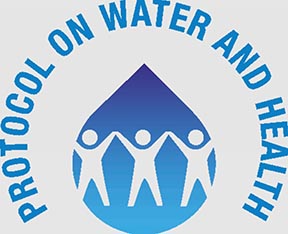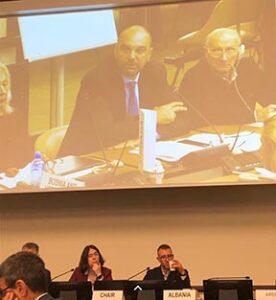Protocol on water and health


Organised by the United Nations Economic Commission for Europe (UNECE), the World Health Organisation (WHO) and the European Protocol on Water and Health, a strategic roundtable on increasing resilience to climate change in the field of water supply and drainage was held in Geneva on 13 and 14 November 2023.
The Croatian delegation, consisting of representatives of Croatian Waters and the Croatian Institute of Public Health, was led by Mario Šiljeg, Director of the Josip Juraj Strossmayer Water Institute, representing the Ministry of Economy and Sustainable Development.
In his presentation, Šiljeg emphasised that the water supply sector in Croatia is very vulnerable to climate change. The Climate Change Adaptation Strategy for the period until 2040, with a view to 2070, identifies the water sector as one of the key sectors that needs adaptation measures to mitigate the inevitable consequences of climate change, especially for the water services sector, which is linked to the state of water and the aquatic environment. In particular, he emphasised the quantitative and chemical status of water bodies used for public water supply and water bodies receiving treated municipal wastewater.
In the concluding interactive discussion on the needs related to climate change and the potential role of the Protocol, Dr Šiljeg identified three suggestions for improvement that could contribute significantly to achieving the objectives of the Protocol.
The first is the strengthening of cross-border cooperation, especially with regard to the promotion of joint applications for infrastructure projects under more favourable financing conditions.
The second is to improve the process of climate change risk assessment and adaptation of water systems, in particular by improving monitoring systems for the ecological and chemical status of water bodies.
As a third objective, he emphasised the need to initiate new negotiations with the Republic of Slovenia on a joint solution to the problem of reduced sediment yield of the river, which affects the deepening of the Sava riverbed and consequently lowers the groundwater level in the Zagreb aquifer.


